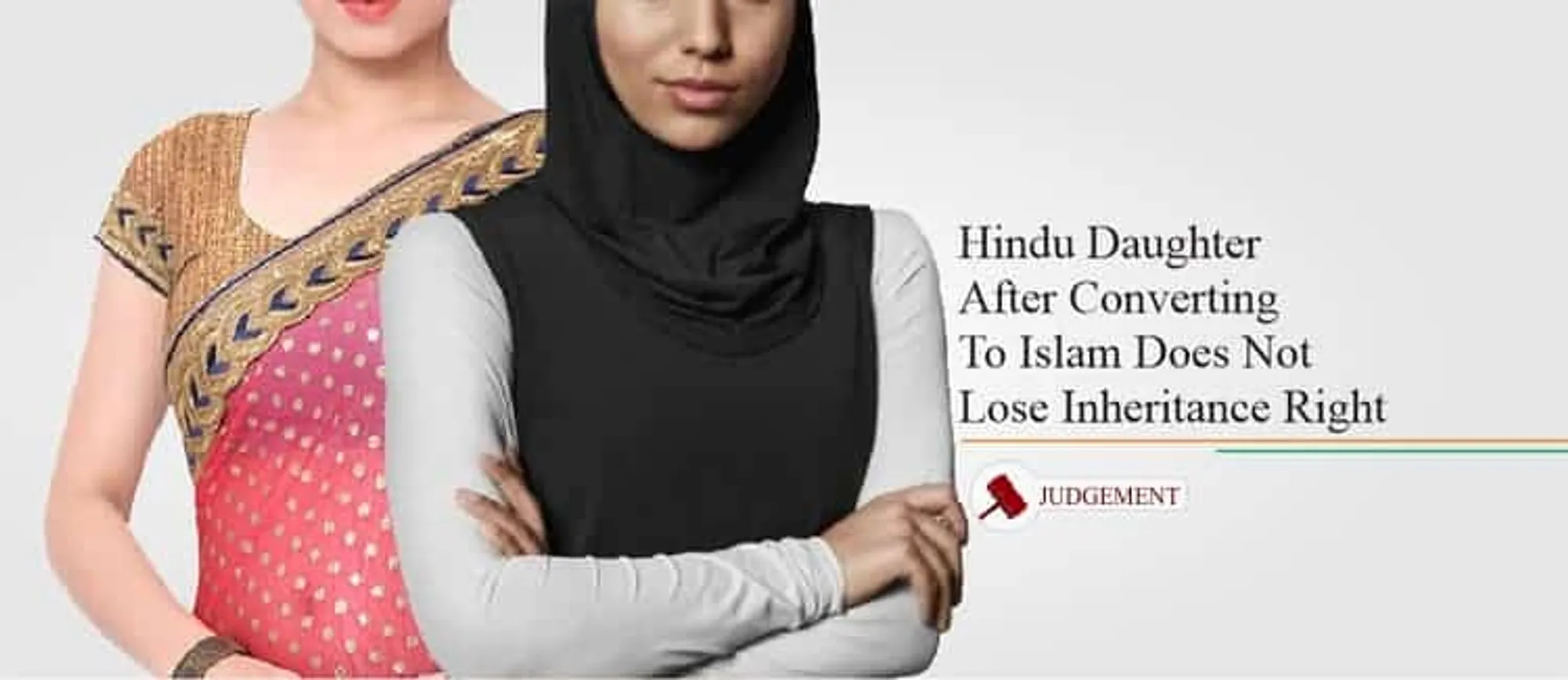(Nayanben Firozkhan Pathan v/s Patel Shantaben Bhikabhai)
In a recent judicial progressive interpretation on a major question:‘whether a Hindu daughter can inherit from her father after getting married to a Muslim and embracing Islam’ was answered on 29thSeptember, 2017 by Gujarat High Court while interpreting the case of NayanBen Firozkhan Pathan. It was referred to Justice Pardiwala who favoured the rights of a converted Hindu daughter into Islam by interpreting Section 2 of Hindu Succession Act in a wider form. Justice Pardiwala held that if the parents of the converted daughter are Hindu by religion and covered by Hindu succession act then the daughter will also come under the umbrella of this act. He suggested in the aforesaid judgment, “Perhaps the Legislature might have thought fit to treat the children of the Hindu as Hindus without foregoing the right of inheritance by virtue of conversion”.
OVERVIEW OF THE CASE:
- Bhikabhai Patel who belongs to Vadodara is the father of Nayanaben Firozkhan and two sons. Mr. Bhikabhai Patel passed away in 2004.
- In the year 1990, she renounced Hindu religion and embraced Islam with her free will. Subsequently an year later, in 1991 she married a Muslim boy.
- After the death of Mr. Patel in 2004, her two brothers got their names recorded in the record of entry 1502 as right by succession and excluded the name of their sister, Ms. Nayanben Firozkhan.
- In the year 2007, Ms. Nayanben filed an affidavit dated 13th December 2007 and produced it before the authority concerned for the getting her name mutated in the revenue record along with her brothers which was questioned by her brothers before the deputy collector ,Vadodra in the form of appeal.
- The Deputy collector dismissed the appeal in 2009 and they filed a revision petition to Collector . The collector gave the decision in favour of the brothers.
- Nayanben, therefore, challenged the Collector’s order before the Gujarat High Court.
JUDGMENT:
Justice Pardiwala upheld the decision of the Deputy Collector by including the converted Hindu daughter into Islam under the purview of the Hindu Succession Act, 1956.
In the judgment, he has relied and supported it on the following grounds:
- Caste Disabilities Removal Act, 1850, (CDRA): Section 1 of the Act prescribes that law or usage which inflicts forfeiture of, or affects, rights on change of religion or loss of caste wereearlier considered sufficient grounds for forfeiture of property and exclusion from inheritance as a right but this ceased to be the case after the enactment of the CDRA, 1850 sole reason being this act protects the person.
- Judgment of Ramesh v. P. Rajini: This judgment was delivered in the year 200 by the division bench of Madras High Court which held that the conversion of a Hindu into another religion will not become a basis to disentitle the inheritance rights. The honourable judges invoked section 2 of the CDRA,1850.
- Interpretation of section 26, the Hindu Succession Act: It states that if a Hindu has ceased to be a Hindu by conversion to another religion, children born to the convert after such conversion and their descendants shall be disqualified from inheriting the property of any of their Hindu relatives, unless such children or descendants are Hindus at the time when the succession opens. Justice Pardiwala interpreted it as non-impactful and ineffective for theconvert’s right to inherit property from her Hindu relatives. But a major interpretation was that the children who are born after the conversion of such convert would not be able to inherit the property.
- Interpretation of section 28 of the Hindu Succession Act: It rules out disqualification from inheritance on any ground whatsoever except those expressly recognised by any provisions of the Act which are re-marriage marriage of certain widows,murderer who is excluded on the principle of justice and public policy and thirdly,the heirs of a convert. In this exception, the heirs of the convert are held to be exclusive of inheritance rights but not the convert.
Download Full Judgment

